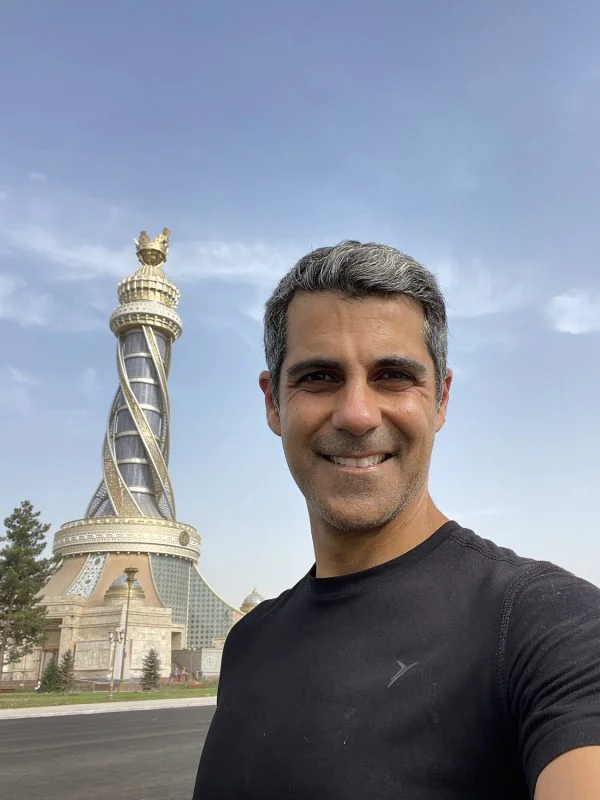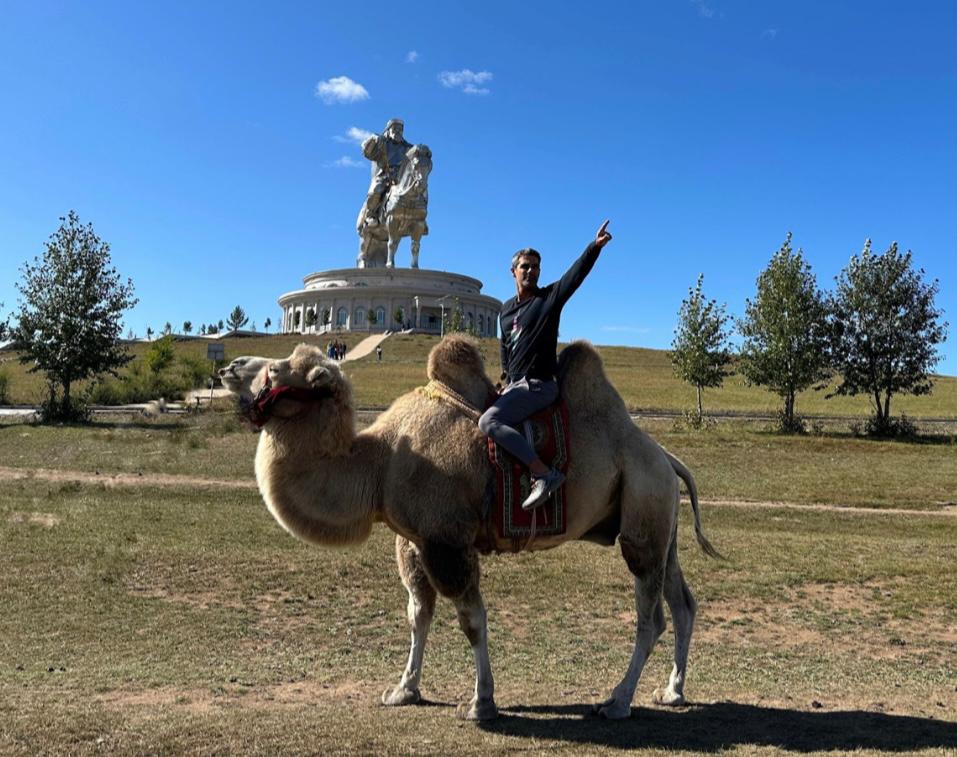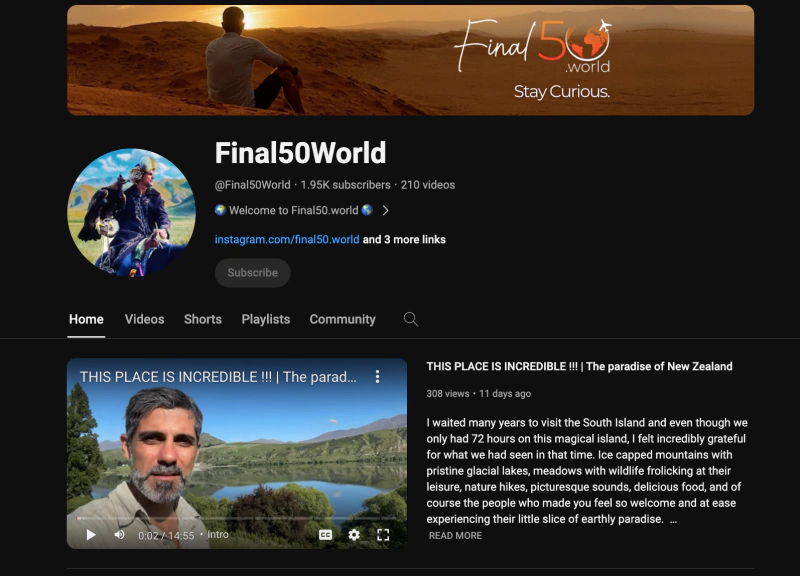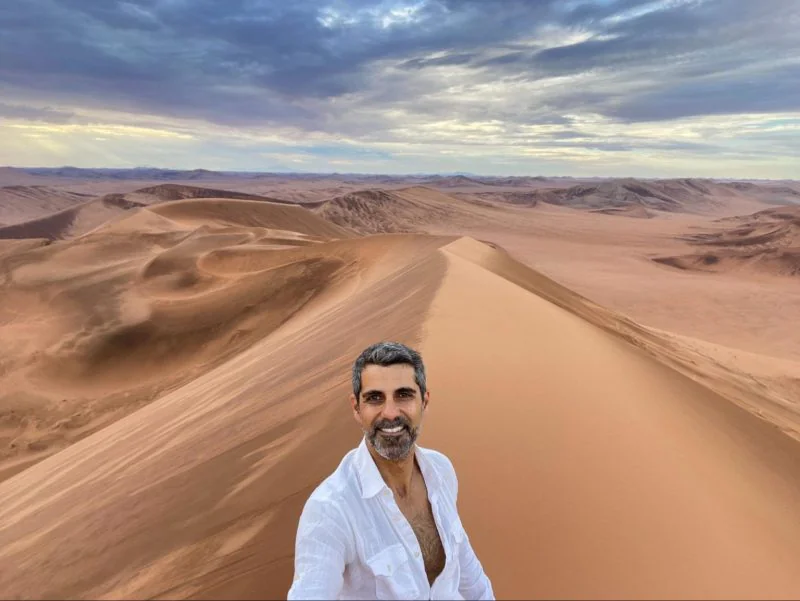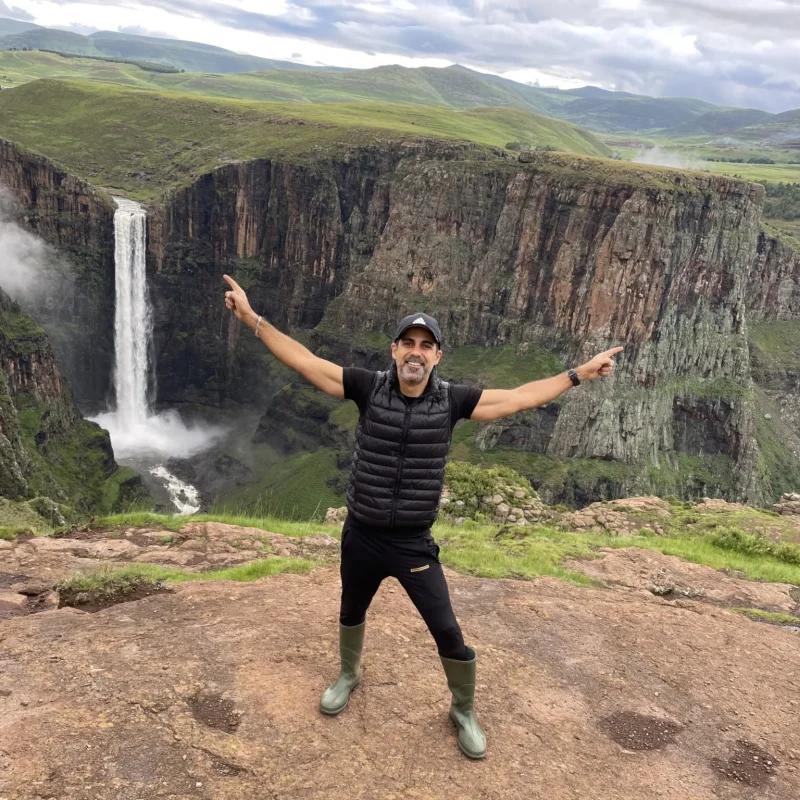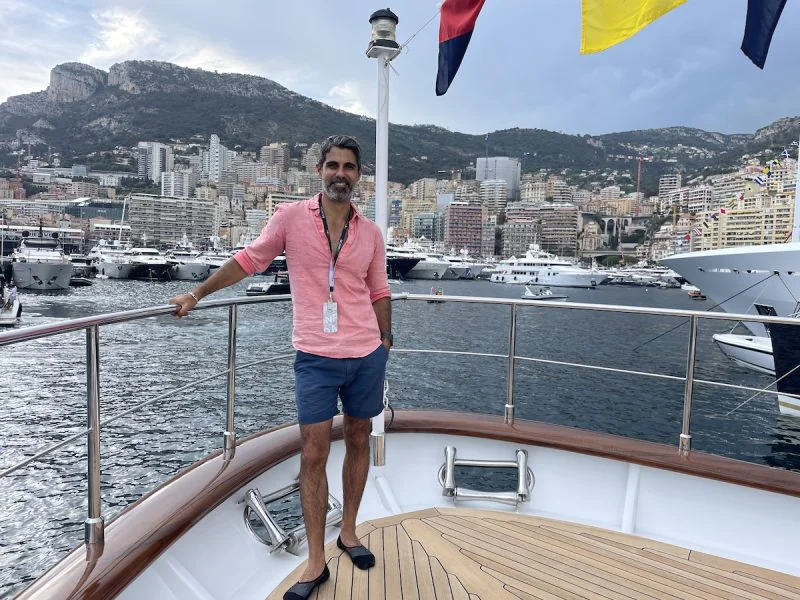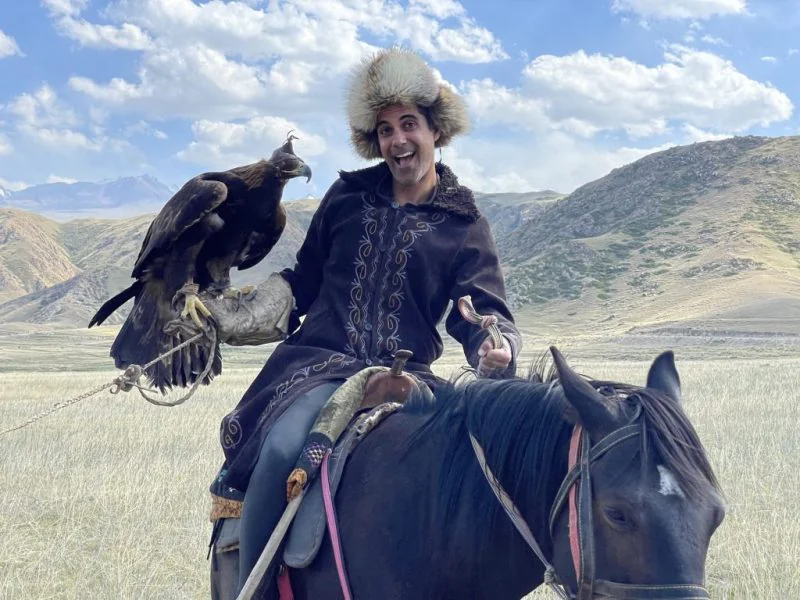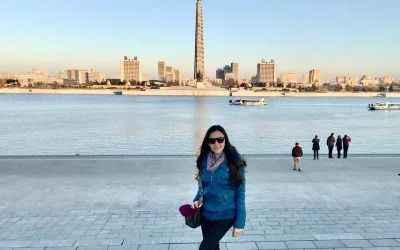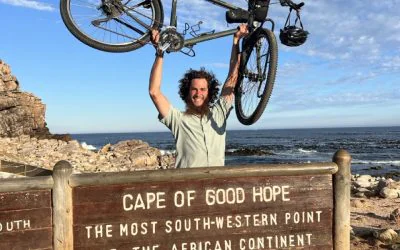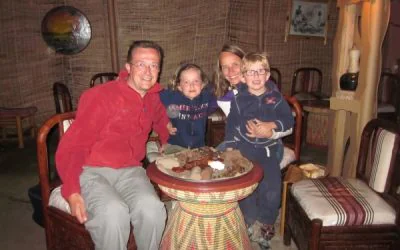For years, Hamada Zahawi was constrained in his ability to travel due to his Iraqi nationality. Since acquiring a U.S. passport, he has taken advantage of his freedom of movement and is now in his Final 50 countries on his quest to visit every nation.
You can also watch this interview in video form on our NomadMania YouTube channel. This interview was conducted by NomadMania envoy Razvan Bondalici.
Tell us something about yourself. How did you get into travel?
The best way to answer that is the fact that I wasn’t able to travel as much as I wanted as a child. And the reason for that is because my family is from Iraq. I was born in Switzerland around the start of the Iran-Iraq War. My father worked for the UN so we travelled a lot around the Middle East, ending up in Egypt and Tunisia, and eventually the United States. Travelling on an Iraqi passport presented a lot of restrictions in terms of getting visas or being unable to exit the airport or the transit lounge. Things like that were very frustrating.
When I got a U.S. passport, I was around 17 years old. I vowed to never take travelling or the freedom of mobility for granted. Although I was based in the U.S. I studied abroad in Spain, did my Masters in England, lived and worked abroad, and I spent significant time in the Middle East. In my mid-twenties I realised, “I’m onto something. I love doing this. I love speaking about it and learning about other people’s experiences”. That’s when I started to approach travelling more proactively.
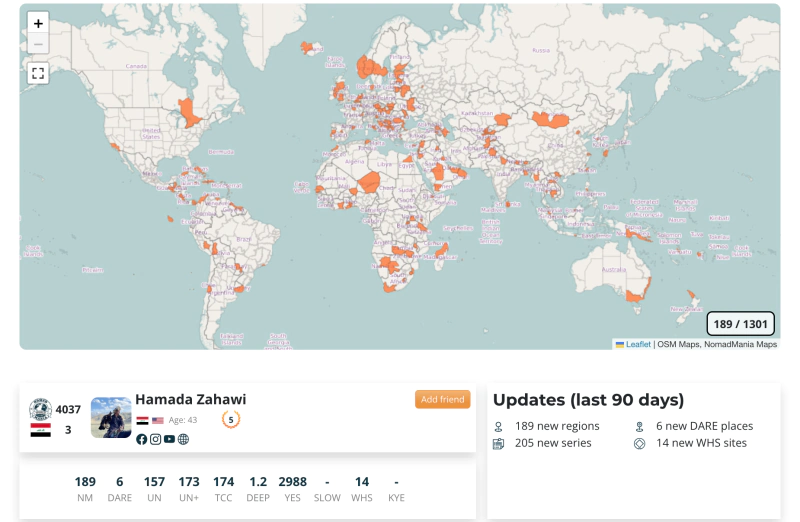
Hamada’s regions map from his NomadMania profile.
What is your style of travel? Has it changed at all from the early days?
In my thirties I worked for the US government as an international lawyer doing international development. I travelled constantly for the US government, being based in Washington D.C. So say I went to Malaysia for work. I would use Malaysia as a base to go to Nepal and then back to Malaysia. Next, I would go to Singapore and, again, back to Malaysia. Then to Brunei and back to Malaysia. I would take advantage of being in a region and hop between countries, keeping the trips to two to three days.
My ability to travel now is facilitated by the fact that almost all of my work is remote. I’m a lawyer so I am able to do legal work from almost anywhere I go. I also own an admissions consulting business assisting students applying for academic programs globally, which also gives me flexibility to travel. My style has been to intersperse work with travel. I try to keep my trips to about two weeks maximum, because I have a family. If I start travelling full time I might not come back!
I’m not a digital nomad hitting the road for a year. I try to do it in intentional spurts because I am limited by time and budget. I think it keeps me efficient.
Can you tell us about the origin of Final50?
Prior to COVID most of my travels were: go into the country, quickly see what I could, and then leave. The pandemic is when I came up with my brand Final50. I was constantly road tripping and going to national parks because I couldn’t travel abroad. While doing these road trips I realised that I was getting close to doing my final fifty countries on Earth. I was around 146 countries at the time and I suddenly came up with this idea of creating Final50 to document my life experiences as I travel.
In the last three years since the Final50 YouTube channel was born, I started documenting my experiences like a travel vlogger would, but using three pillars: education, entertainment, and exploration. Think of it like “mind, body, and soul.” I studied history and political science so I love to go in depth to what the culture I’m visiting is like and why it’s like this. What is the music like? What is the food like? These are the stories I want to share. It’s also helped me become more proactive with engaging the locals wherever I go and it has made my travel experiences so much better.
Have you had any encounters or experiences while travelling that changed you or left a lasting impression on you?
I have two that come to mind immediately. The first was in Namibia during COVID. I went by myself and I was driving through these incredible sand dunes during a very rainy period. It was also a low season so I would go for miles and miles without seeing a single person. It’s hard to describe the feeling of waking up at sunrise, hiking to the top of a dune, seeing it from above, and being completely alone.
It’s impossible to describe feeling like in that moment the whole world is yours and at the same time being so small in such a vast nothingness. It gives me goosebumps and I always find myself praying in those moments because I’m so filled with gratitude.
Right after that I was swept away in my vehicle by a river. I was seeing my life flash before my eyes The car hit a bed of rocks and I managed to wiggle out of the window and get to the roof. This happened right after this amazing moment on the dunes. These two moments side by side, going from bliss to potentially my last moment because of a decision I had made This was very formative because I was brought back to reality.
The second was climbing Kilimanjaro. What was amazing about it was having to push myself to get to the top. I gave myself a goal to get to the top of the mountain without succumbing to altitude sickness, getting injured, and making sure I was eating and sleeping well. The magical moment for me was when I reached the top. We woke up at 1:00AM and most people take their time to get up there, taking anywhere between six to nine hours.
I pushed myself because I wanted to see the sunrise. We got there at 5:45AM, I ran to the summit, and I just started crying. I’m not sure why, but when I find myself in these moments of bliss I thank God that I’m alive and that I’m seeing it and witnessing it, because I know that so many people will never have that opportunity.
Do you have any places in the world that you will always return to? Or a place that you’d like to keep in your mind forever?
There are so many moments and places that were absolutely magical. The first that immediately comes to mind is White Sands, New Mexico. The whole area is white, filled with this incredibly fine sand. I remember it so well because it was during COVID and everything was shut down. Nobody was there. I watched the sun set over the desert and I remember being unable to hear anything. Now when I’m stressed out and I need to calm down I think of that peaceful moment in White Sands.
With so much travel experience under your belt, how do you stay motivated?
My motto is “Stay curious.” If you stay curious, everything in your life will continue functioning. To stay curious you need to be motivated and determined. I’ve been blessed in that I’m curious, I’m determined, and I have a lot of energy. I’ve been able to channel that to travel. Because I’m staying curious, you’ll find me asking lots of questions every day. I believe that helps you when you travel. I go down rabbit holes reading about the history, geography, culture, and so on. So when I get there, I see the country go from the black and white of paper to three-dimensional.
At the same time I think spontaneity in travel is extremely important. So you have to balance being spontaneous with not missing out on opportunities. For example, I’d been to Bolivia. I had never heard of the famous salt flats, the Salar de Uyuni. I went to Bolivia, never saw it, and I left. And then years later I found out about it and thought, “Wow! How did I miss this?!” So I went back to Bolivia to see it. There’s something beautiful about being spontaneous and going with the flow, but it does cut both ways when you miss out on something amazing.
Have you had a significant turning point in your journey as a big traveller?
By 2011 I had travelled to maybe 90-95 countries, but I had never travelled to Iraq. I had an opportunity to train speakers for TED Talks in Baghdad. I remember travelling there so distinctly, because I met family that I had never met. I ate food that I had only heard about. It was such a profound experience seeing Iraq for the first time. I’ve been back to Iraq many times working for the U.S. government, but work there is done from a strict, secure location. That was the only time I was able to walk the streets as a civilian.
There’s something really profound about going back to your roots. It actually changed my career trajectory. I went from being a lawyer to being an international development lawyer working for the U.S. government. It was important to have my Iraqi-American identity. It opened my eyes and I became much more involved in civic engagement because I went to Iraq embraced myself as both an Iraqi and an American. It was a huge turning point for me both personally and as a traveller.
Do you have continued goals or plans for after you finish the UN countries?
I haven’t decided! It’s possible I will probably live abroad and travel like I always have. There are a lot of countries I would love to go back to and want to spend more time in. I may continue doing these vlogs because I think they’re fun, but who knows! I have no definitive answer.
Finally, our signature question, if you could invite three people to dinner from any period in history who would you invite?
The first would be Ibn Batuta, one of the most travelled people in history. He’s an amazing source of inspiration. The second person would be Leonardo Da Vinci. He’s the Renaissance man. He invented so many things during his lifetime and I think we could learn a lot from him. The third person would have to be President Obama. He was so important for the U.S. and in my own life. I ended up working for the U.S. government because I believed in him.
Don’t forget to follow Hamada’s journey on his YouTube channel, Instagram, and the Final50 official webpage.
